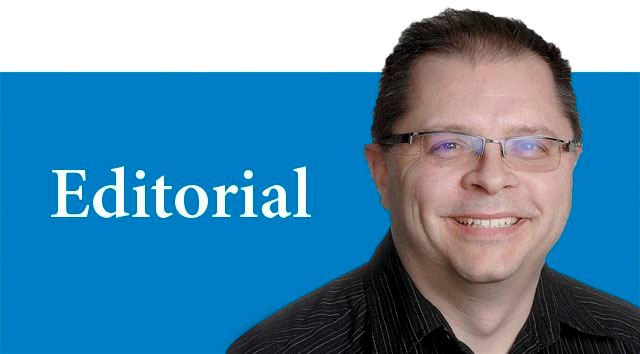Part two of two
For her book Strangers In Their Own Land: Anger and Mourning on the American Right, sociologist Arlie Russell Hochschild left her cozy liberal confines at the University of California Berkeley for rural Louisiana. She knew people in the rural South held political, social, cultural and religious views unlike her own. She decided she needed to get to know them as people to find out why.
After five years, she was able to scale what she calls the "empathy wall," that very real separation between people of different backgrounds that holds them back from not only understanding how other people live and think but to have empathy for those people and their views.
It should be no surprise that she found the people who support the Tea Party, voted for Donald Trump, turn their nose at environmental regulation and a government-sponsored health care plan (or anything else overseen by bureaucrats) and are faithful to family, God and country are decent individuals with legitimate concerns.
Hochschild tells their "deep story," starting with their fierce belief in the American dream and how that dream has been corrupted by people cutting in line, instead of working for it.
Government has not only allowed women, homosexuals, people of other races and religions and people with mental and physical challenges to cut in line, they've even let the trees, the water, the air and the animals to barge in. Not only are they cutting in line, they're then changing what it means to be American.
In other words, there's room for everyone except white, traditional working-class males and the families that depend on them and that's not fair and it's not right.
Then there's the '60s, both of them. Even 150 years later, rural Southerners still bristle at know-it-all Northerners telling them how to live, what to believe and even how to think and speak. Combine that with the ongoing resentment towards the cultural changes unleashed in the 1960s.
Within the deep story and the history, Hochschild found four primary characters: the team players, the worshippers, the cowboys and the rebels.
The team players devote themselves to family and political party, meaning they abhor individual rights overriding the rites of the community because everyone should fall in line. The worshippers see their world through their Christian beliefs, meaning they find abortion, homosexuality, other religions (or none at all), evolution and nontraditional family structures as not only immoral but dangerous and evil behaviour that must be opposed.
The cowboys make due with whatever they get, good or bad, and don't complain about their circumstances or portray themselves as victims to get special treatment because only losers do that.
The rebels are willing to challenge local and popular beliefs but within the existing social structures. Hochschild found Tea Party environmentalists, Christians opposed to Trump and Republicans wanting big business to pay their share and take better care of their workers.
It's not hard to apply a Canadian and northern B.C. view to Hochschild's findings. There are many Canadians and local residents who see people telling a sob story to cut in line and then changing the definition of what it means to be Canadian in the process. These folks are mad, expressing it with their ALL-CAPS OUTRAGE, that the politicians and the media are not only doing nothing to stop it, they're actually supporting and encouraging it.
What Hochschild largely ignores in her book is how she and other academics laid the intellectual framework for these changes, with postmodernism and cultural relativism.
These concepts have little room for objective facts and truths, especially in the social sciences, allow for new interpretations based on different perspectives and anyone who insists that all views don't deserve to be heard and respected, regardless of how ridiculous and outside of reality they are, is an intolerant oppressor.
More than a few observers have rightly pointed out that these concepts have set the table for "alternative facts" and how that insistence on tolerance seems to only flow in one direction, away from anything or anyone traditional. It's the dominant ethic on most college and university campuses in North America, including CNC and UNBC.
What galls so many people with traditional political, social, cultural and/or religious beliefs is how the society that was built with those beliefs, now rejects them and the people who still hold them, in whole or in part.
From their perspective, it is a personal attack on them and everything they hold dear.
So both sides shout at each other, dismissing each other with slurs. That's one way to see the two pictures taken Saturday at Prince George city hall of the supporters of the Canadian Coalition of Concerned Citizens and the supporters of PG for Unity In Our Community.
Another way to see it is two groups of people with far more in common than what divides them. They both care about their city and their country, the law, democracy, science, education, health, safety, fairness, decency, respect and the right of the people who disagree with them to also stand in public and say so without fear of harm.
More talking, less shouting.
More listening, less talking.
Let's start there and see what happens next.
-- Managing editor Neil Godbout



